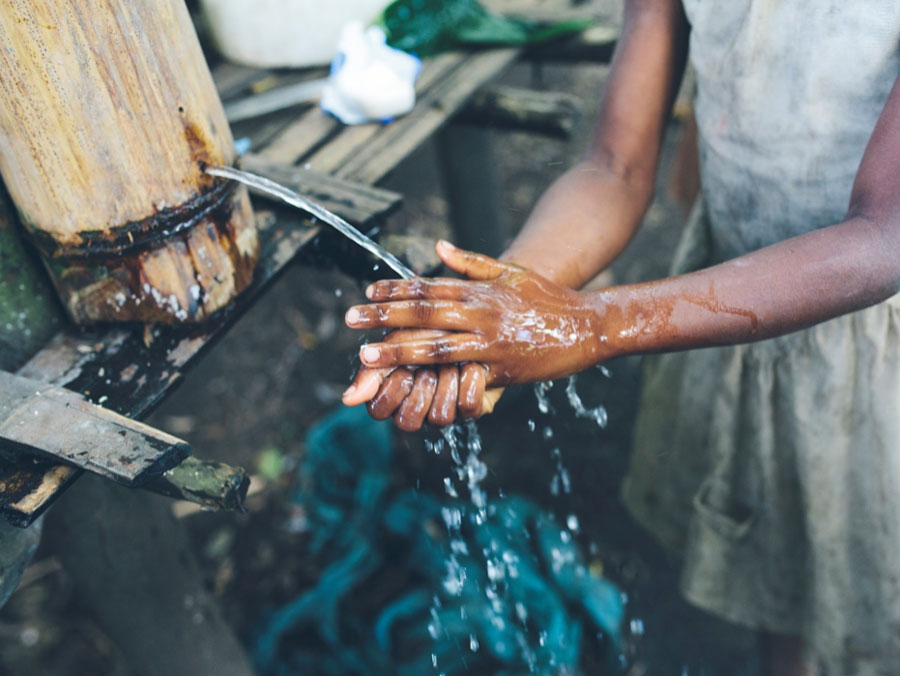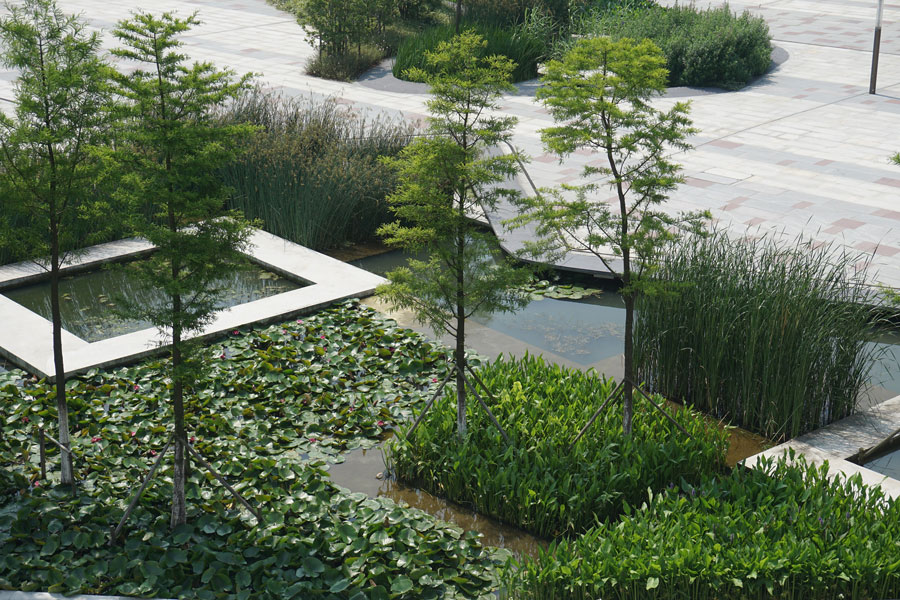This World Water Day, we are reflecting on water’s value to communities, economies, and the environment.
How do you value something so essential to life as water? In our workplaces and marketplaces water supports agriculture, industry, energy, and productivity. In our households, hospitals, schools, and communities, water means health, hygiene, dignity, recreation, and a clean environment. All over the world water has enormous cultural and religious value.
Realising water’s many different values is a challenge faced across the globe. An increasingly important way of doing this is through what are known “nature-based solutions”, which use “green infrastructure” such as wetlands and forests rather than traditional “grey infrastructure” such as concrete dams, weirs, and drains.
Conventional water management approaches can often overlook—or harm—water’s broad environmental, social, or cultural values. A large conventional dam is a good example. It can store water, but it can have negative impacts as well.
Nature-based solutions can have multiple uses while harnessing the natural systems that already clean, supply, recycle, drain and regulate the water that every community, economy, and ecosystem relies on.
Nature based solutions are actions to protect, sustainably manage, and restore natural or modified ecosystems, that address societal challenges effectively and adaptively, simultaneously providing human well-being and biodiversity benefits. (IUCN)
Nature-based solutions can also better protect communities from natural disasters such as floods, droughts, cyclones, and rising sea levels.
Australia, Thailand, Vietnam, and the World Bank are working together on nature-based solutions for urban flooding in the Mekong region. Through the Australian Water Partnership (AWP), the joint project is showing how nature-based solutions embedded in creative urban design can be a cost-effective and sustainable flood management tool—and deliver wider benefits to communities.
For example, one of the projects in Vietnam is exploring how an urban swamp forest can mitigate frequent flooding in the Thu Durc district of Ho Chi Minh City. A swamp forest will channel stormwater into aquifers—natural water storage systems—and a subsurface wetland will treat wastewater before it drains away.
Another project in Vietnam will use green infrastructure, a wetland, to regulate and harvest flood water, support local bird and wildlife and deliver an ecotourism attraction.
The broader project is helping to build capacity in government, business, and civil society to value green infrastructure urban flood solutions and to develop and evaluate investment options. Through case studies and training, the project is establishing national champions who can identify, evaluate, and quantify nature-based solutions with a robust economic framework.
"The [project] provides policymakers and professionals with an alternative approach for effective and sustainable water management. The concept of [nature-based solutions] is getting more and more attention in Thailand," said Ms Chompunut Songkhao, an Environmental Official at the Climate Change Management and Coordination Division of the Office of Natural Resources and Environmental Policy and Planning.
Thailand is one of the world’s top 15 countries by population exposure to river floods. In Vietnam, water-related natural disasters affect more than 70 percent of the population, making it one of the most hazard-prone countries in the world.
Nature-based solutions can offer cost-effective and sustainable answers for urban flood management and provide additional benefits to communities and the environment. Green infrastructure can be faster to deliver, involve lower technology requirements, and be flexibly implemented as standalone or hybrid solutions involving grey engineering.
The project is supported by the AWP Mekong Facility and implemented by Australia’s Cooperative Research Centre for Water Sensitive Cities and International Centre for Environmental Management.
More information on the project is available at waterpartnership.org.au.


